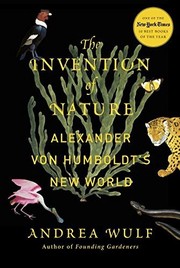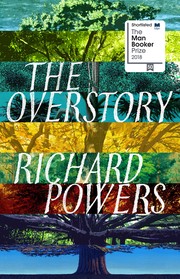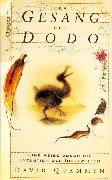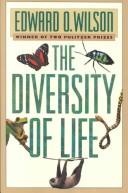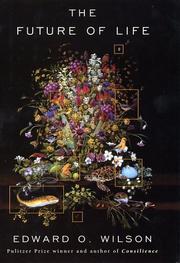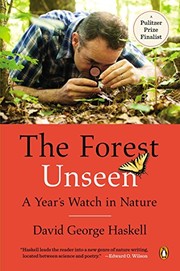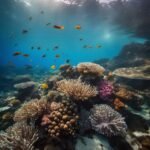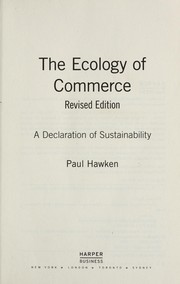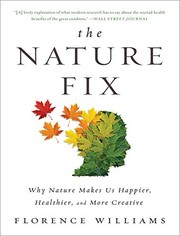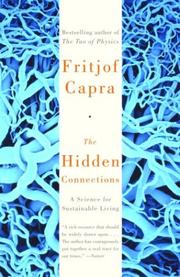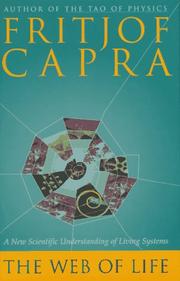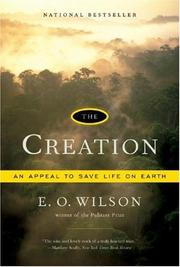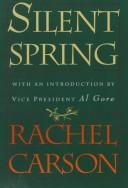Are you a nature enthusiast looking for the perfect book on ecosystems? Look no further! We’ve compiled a list of the 20 best ecosystems books that will take you on a journey through the diverse and fascinating world of ecosystems. From the lush rainforests to the depths of the ocean, these books will immerse you in the beauty and complexity of our planet’s natural systems. Whether you’re an avid reader or a budding environmentalist, these books are sure to inspire and educate you about the wonders of the natural world. Let’s dive in and explore the best books about ecosystems!
Contents
- 1 20 Best Ecosystems Books
- 2 The Hidden Life of Trees
- 3 The Sixth Extinction: An Unnatural History
- 4 The Invention of Nature: Alexander von Humboldt’s New World
- 5 The Overstory
- 6 The Serengeti Rules: The Quest to Discover How Life Works and Why It Matters
- 7 The Song of the Dodo: Island Biogeography in an Age of Extinctions
- 8 The Diversity of Life
- 9 The Future of Life
- 10 The Hidden Half of Nature: The Microbial Roots of Life and Health
- 11 The Forest Unseen: A Year’s Watch in Nature
- 12 The Ecology of Commerce: A Declaration of Sustainability
- 13 The World Without Us
- 14 The Nature Fix: Why Nature Makes Us Happier, Healthier, and More Creative
- 15 The Once and Future World: Nature As It Was, As It Is, As It Could Be
- 16 The Sixth Extinction: Patterns of Life and the Future of Humankind
- 17 The Hidden Connections: A Science for Sustainable Living
- 18 The Web of Life: A New Scientific Understanding of Living Systems
- 19 The Living Planet: A Portrait of the Earth
- 20 The Creation: An Appeal to Save Life on Earth
- 21 Silent Spring
- 22 Final Thoughts on Best Ecosystems Books
- 23
20 Best Ecosystems Books
The Hidden Life of Trees
by Peter Wohlleben
The Hidden Life of Trees by Peter Wohlleben is a fascinating book on ecosystems that reveals the complex and interconnected world of forests. Wohlleben, a forester, shares his deep understanding of the natural world and provides insight into the lives of trees, showcasing their remarkable abilities to communicate, cooperate, and care for one another. Through captivating storytelling and scientific research, Wohlleben uncovers the hidden networks and symbiotic relationships that exist within forests, shedding light on the incredible complexity of these ecosystems. Readers will gain a newfound appreciation for the intelligence and resilience of trees, as well as a deeper understanding of the vital role they play in sustaining the planet’s biodiversity. This ecosystems book offers a thought-provoking perspective on the natural world and challenges us to reconsider our relationship with the environment. Whether you’re a nature enthusiast or simply curious about the complexities of the natural world, The Hidden Life of Trees is sure to leave you with a newfound appreciation for the interconnectedness of all living things.
The Sixth Extinction: An Unnatural History
by Elizabeth Kolbert
The Sixth Extinction: An Unnatural History by Elizabeth Kolbert is a captivating and thought-provoking book on ecosystems and the impact of human activity on the planet. Kolbert takes readers on a journey through time, exploring the five previous mass extinctions and examining the current crisis facing the world’s biodiversity. She skillfully weaves together scientific research, field observations, and interviews with experts to paint a vivid picture of the interconnectedness of life on Earth and the devastating consequences of human actions. Through engaging storytelling and compelling evidence, Kolbert presents a compelling case for the urgent need to address the ongoing extinction crisis.
The Invention of Nature: Alexander von Humboldt’s New World
by Andrea Wulf
The Invention of Nature: Alexander von Humboldt’s New World by Andrea Wulf is a captivating book about ecosystems. It tells the remarkable story of Alexander von Humboldt, a visionary naturalist and explorer who revolutionized our understanding of the natural world. Humboldt’s groundbreaking work on the interconnectedness of nature and the environment laid the foundation for modern environmentalism and ecology.
Wulf’s narrative takes readers on a thrilling journey through Humboldt’s expeditions in the Americas, where he studied and documented the diverse ecosystems he encountered. From the lush rainforests of the Amazon to the snow-capped peaks of the Andes, Humboldt’s observations and insights continue to inspire and inform our understanding of the earth’s complex web of life.
Through vivid storytelling and rich historical detail, Wulf brings Humboldt’s extraordinary life and enduring legacy to life. The Invention of Nature is a must-read for anyone interested in the natural world and the pioneering individuals who shaped our understanding of it.
The Overstory
by Richard Powers
The Overstory by Richard Powers is a captivating novel that delves into the intricate and interconnected world of forests and the diverse life forms they support. This richly layered narrative weaves together the stories of nine individuals whose lives are profoundly impacted by trees. As they each become attuned to the hidden communication and complex systems of the forest, they are drawn into a passionate activism to save the ancient trees from destruction.
This profound and thought-provoking book on ecosystems not only explores the profound impact of trees on the environment, but also delves into the deep connections between humans and nature. Powers’ lyrical prose and meticulous research bring to life the intricate web of life that exists within a forest, and the profound ways in which it shapes the world around us. The Overstory is an ecosystems book that will leave readers with a newfound appreciation for the natural world and a renewed sense of responsibility to protect it.
The Serengeti Rules: The Quest to Discover How Life Works and Why It Matters
by Sean B. Carroll
The Serengeti Rules: The Quest to Discover How Life Works and Why It Matters by Sean B. Carroll is a captivating book about ecosystems and the scientists who unraveled the mysteries of life’s intricate balance. Carroll takes readers on a journey through diverse ecosystems, from the Serengeti to the depths of the oceans, and introduces the pioneering researchers who uncovered the fundamental principles that govern life.
Through fascinating stories and compelling scientific discoveries, Carroll explains how the interactions between species, the flow of energy, and the regulation of populations shape ecosystems. He also delves into the consequences of disrupting these ‘rules’ and the impact it has on the environment and human well-being.
This thought-provoking book about ecosystems sheds light on the interconnectedness of life on Earth and the importance of understanding and preserving the delicate balance of nature. The Serengeti Rules is a must-read for anyone curious about the inner workings of ecosystems and the profound implications of our actions on the natural world.
The Song of the Dodo: Island Biogeography in an Age of Extinctions
by David Quammen
The Song of the Dodo: Island Biogeography in an Age of Extinctions by David Quammen is a captivating exploration of the intricate relationships between species and their environments. This thought-provoking book delves into the concept of island biogeography, examining the impact of isolation and habitat fragmentation on the evolution and extinction of species. Through engaging storytelling and rigorous scientific research, Quammen sheds light on the fragility of ecosystems and the pressing issue of biodiversity loss in the modern world.
With a keen eye for detail and a compelling narrative style, Quammen takes readers on a journey through remote islands and distant continents, unraveling the complex web of life that exists in these unique environments. The Song of the Dodo is a fascinating and enlightening read for anyone interested in the natural world and the interconnectedness of all living things. This ecosystems book is an essential addition to the library of anyone who wants to deepen their understanding of the delicate balance that sustains life on our planet.
The Diversity of Life
by Edward O. Wilson
The Diversity of Life by Edward O. Wilson is a captivating exploration of the intricate and interconnected web of life on Earth. This landmark book on ecosystems takes readers on a journey through the rich tapestry of biodiversity that exists in our world, from the tiniest microorganisms to the grandeur of rainforests and coral reefs. Wilson delves into the fascinating relationships between species and their environments, shedding light on the delicate balance that sustains life on our planet.
With eloquence and insight, Wilson addresses the pressing issues of conservation and the threats posed by human activities to the delicate ecosystems that support a myriad of life forms. He offers a compelling argument for the urgent need to protect and preserve our natural world, drawing attention to the intricate and often unseen connections that underpin the diversity of life.
The Diversity of Life is a thought-provoking and enlightening book about ecosystems that will inspire readers to appreciate and safeguard the remarkable complexity of our planet’s natural systems.
The Future of Life
by Edward O. Wilson
The Future of Life by Edward O. Wilson is a captivating book about ecosystems and the urgent need for their preservation. Wilson, a renowned biologist, explores the intricate web of life on Earth and the devastating impact of human activities on ecosystems. He delves into the biodiversity crisis and the alarming rate of species extinction, offering a compelling argument for the conservation of our planet’s natural resources.
Through vivid storytelling and scientific insight, Wilson paints a vivid picture of the interconnectedness of all living organisms and the delicate balance of ecosystems. He emphasizes the importance of protecting our natural habitats and the irreplaceable value of the diverse species that inhabit them. The book serves as a wake-up call, urging readers to take action and become stewards of the environment for the sake of future generations.
The Future of Life is a thought-provoking and enlightening read that sheds light on the beauty and fragility of our planet’s ecosystems, making it a must-read for anyone passionate about the preservation of nature.
The Hidden Half of Nature: The Microbial Roots of Life and Health
by David R. Montgomery and Anne Biklé
The Hidden Half of Nature: The Microbial Roots of Life and Health is a fascinating book about the intricate and often overlooked world of microbial ecosystems. Authors David R. Montgomery and Anne Biklé take readers on a journey through the hidden half of nature, revealing the vital role that microbes play in our lives and the health of the planet.
Through engaging storytelling and scientific insights, the book explores the complex and symbiotic relationship between humans, plants, and the microbial world. It delves into the ways in which these tiny organisms shape the soil, nourish plants, and impact our health in profound ways.
Readers will gain a new appreciation for the interconnectedness of all living things and the delicate balance of ecosystems. The Hidden Half of Nature is a thought-provoking and eye-opening exploration of the microbial world, offering a fresh perspective on the importance of nurturing and understanding these vital ecosystems.
The Forest Unseen: A Year’s Watch in Nature
by David George Haskell
The Forest Unseen: A Year’s Watch in Nature by David George Haskell is a captivating book about ecosystems and the intricate web of life within a small patch of old-growth forest. Haskell takes readers on a year-long journey through the forest, observing the subtle changes and interconnectedness of the ecosystem. Through his keen observations, he delves into the complex relationships between plants, animals, fungi, and microorganisms, offering a deeper understanding of the natural world.
Using a blend of science, poetry, and personal reflection, Haskell paints a vivid portrait of the forest and its inhabitants, demonstrating the beauty and resilience of nature. Each chapter offers a glimpse into the wonders of the ecosystem, from the delicate dance of pollinators to the underground network of roots and mycorrhizal fungi. The Forest Unseen is a thought-provoking and lyrical exploration of the natural world, reminding readers of the interconnectedness of all living things and the importance of preserving our ecosystems for future generations.
The Ecology of Commerce: A Declaration of Sustainability
by Paul Hawken
The Ecology of Commerce: A Declaration of Sustainability by Paul Hawken is a thought-provoking book about the interconnectedness of business and the environment. Hawken explores the impact of industrialization on our planet’s ecosystems, offering a compelling argument for the need to integrate sustainable practices into our economic systems. Through a combination of scientific research and real-world examples, the book illustrates the devastating effects of unchecked consumerism and offers a roadmap for creating a more harmonious relationship between commerce and the natural world.
This eye-opening book on ecosystems challenges readers to reconsider their assumptions about the role of business in the environment and provides a compelling case for rethinking traditional models of production and consumption. Hawken’s insightful analysis and passionate call to action make this a must-read for anyone interested in the intersection of business and sustainability.
The World Without Us
by Alan Weisman
The World Without Us by Alan Weisman is a fascinating book on ecosystems that explores what would happen to the planet if humans were to suddenly disappear. Weisman takes readers on a thought-provoking journey through time, envisioning how nature would reclaim the Earth and how various ecosystems would evolve in our absence. From cities being swallowed by vegetation to the gradual breakdown of human infrastructure, the book paints a vivid picture of a world where nature reigns supreme.
Through meticulous research and captivating storytelling, Weisman delves into the resilience of ecosystems, discussing how plants and animals would thrive and adapt in a world without human intervention. The book about ecosystems raises important questions about our impact on the planet and offers a unique perspective on the interconnectedness of all living things. With its blend of science, history, and speculation, The World Without Us is a thought-provoking and eye-opening exploration of the delicate balance of life on Earth.
The Nature Fix: Why Nature Makes Us Happier, Healthier, and More Creative
by Florence Williams
The Nature Fix: Why Nature Makes Us Happier, Healthier, and More Creative by Florence Williams is a captivating book about ecosystems and the profound impact nature has on our well-being. Through a combination of scientific research, personal stories, and immersive experiences in ecosystems around the world, Williams explores the restorative power of nature on our physical and mental health.
Readers will journey through diverse ecosystems such as forests, mountains, and urban parks, discovering how exposure to nature can reduce stress, improve cognitive function, and enhance creativity. The book delves into the concept of “biophilia,” our innate connection to the natural world, and how modern society’s disconnect from nature has led to a host of health issues.
Williams also investigates the role of technology and urbanization in shaping our relationship with nature, offering practical strategies for incorporating more green spaces into our daily lives. With lyrical prose and compelling insights, The Nature Fix is a must-read for anyone seeking a deeper understanding of the profound benefits of spending time in ecosystems.
The Once and Future World: Nature As It Was, As It Is, As It Could Be
by J.B. MacKinnon
The Once and Future World: Nature As It Was, As It Is, As It Could Be by J.B. MacKinnon is a thought-provoking book about ecosystems. MacKinnon takes readers on a journey through time, exploring the dramatic changes that have occurred in the natural world and the impact of human activity on ecosystems. He challenges readers to consider the concept of “shifting baselines,” where our perception of what is natural is constantly changing as we adapt to the degraded state of the environment. The book offers a powerful message about the importance of understanding and preserving the natural world, while also providing hope for the future by presenting examples of successful conservation efforts. MacKinnon’s engaging writing style and in-depth research make this book a must-read for anyone interested in the environment and the future of our planet.
The Sixth Extinction: Patterns of Life and the Future of Humankind
by Richard E. Leakey and Roger Lewin
The Sixth Extinction: Patterns of Life and the Future of Humankind is a fascinating book about the delicate balance of life on Earth. Written by Richard E. Leakey and Roger Lewin, this book delves into the intricate web of interconnected species and ecosystems that make up our planet. The authors explore the concept of extinction and its impact on the future of humankind, drawing on evidence from the past five mass extinctions to predict the potential consequences of the sixth extinction we are currently experiencing.
Leakey and Lewin’s book on ecosystems is a thought-provoking and eye-opening exploration of the fragility of life on Earth. They discuss the various factors contributing to the current extinction crisis, including climate change, habitat destruction, and human activity. The book offers a comprehensive analysis of the patterns of life and the future of humankind, urging readers to consider the implications of our actions on the natural world. The Sixth Extinction is a must-read for anyone interested in the environment, biodiversity, and the future of our planet.
The Hidden Connections: A Science for Sustainable Living
by Fritjof Capra
The Hidden Connections: A Science for Sustainable Living by Fritjof Capra is a thought-provoking book about the intricate web of relationships that make up the natural world. In this insightful work, Capra explores the concept of interconnectedness in ecosystems, revealing how everything in nature is linked and dependent on one another. He delves into the fascinating ways in which living organisms, including humans, interact with their environment, and the profound impact these relationships have on the sustainability of our planet.
Through a captivating blend of scientific research and philosophical inquiry, Capra presents a compelling case for re-evaluating our approach to living in harmony with the Earth. He introduces the idea of systems thinking, encouraging readers to consider the holistic nature of ecosystems and the importance of adopting a more sustainable lifestyle. This eye-opening book about ecosystems is a must-read for anyone interested in understanding the complex dynamics of nature and finding ways to promote a healthier, more balanced relationship with our environment.
The Web of Life: A New Scientific Understanding of Living Systems
by Fritjof Capra
The Web of Life: A New Scientific Understanding of Living Systems by Fritjof Capra is a groundbreaking book about ecosystems and the interconnectedness of all living things. Capra explores the concept of ecosystems and how they function as complex, self-regulating systems. He delves into the latest scientific research to show how everything in nature is interconnected, from the smallest microorganisms to the largest ecosystems.
Capra’s book about ecosystems is a thought-provoking and enlightening read that challenges the traditional view of life as a collection of separate, isolated entities. Instead, he presents a new paradigm of understanding living systems as dynamic and interconnected networks. The Web of Life offers a fresh perspective on the natural world and provides insight into the ecological principles that govern the planet.
Whether you’re a biologist, environmentalist, or simply curious about the intricate web of life, this ecosystems book will expand your understanding of the natural world and inspire a deeper appreciation for the complexity and beauty of ecosystems.
The Living Planet: A Portrait of the Earth
by David Attenborough
The Living Planet: A Portrait of the Earth by David Attenborough is a captivating book on ecosystems that takes readers on a remarkable journey through the diverse habitats of our planet. Attenborough, a renowned naturalist and broadcaster, provides a vivid and compelling portrayal of the Earth’s ecosystems, from the lush rainforests to the icy polar regions. With stunning photography and insightful storytelling, this book about ecosystems offers a deep exploration of the intricate relationships between different species and their environments.
Readers will be enthralled by Attenborough’s passionate and knowledgeable perspective on the delicate balance of nature and the impact of human activity on the planet. The Living Planet is not just a book about ecosystems, but a call to action to protect and preserve the incredible diversity of life on Earth. Whether you are a nature enthusiast or simply curious about the world around you, this ecosystems book will inspire a deeper appreciation for the beauty and complexity of our living planet.
The Creation: An Appeal to Save Life on Earth
by Edward O. Wilson
The Creation: An Appeal to Save Life on Earth by Edward O. Wilson is a compelling book about ecosystems that delves into the urgent need to protect and preserve the natural world. Wilson, a renowned biologist, presents a powerful argument for the conservation of biodiversity and the vital role it plays in sustaining life on Earth. Through eloquent prose and insightful observations, he emphasizes the interconnectedness of all living organisms and the delicate balance of ecosystems. Wilson’s plea for environmental stewardship is both urgent and persuasive, drawing on his vast knowledge and passion for the natural world. The book serves as a wake-up call, urging readers to take action and become advocates for the protection of our planet’s precious ecosystems. The Creation is a thought-provoking and inspiring read that challenges us to reexamine our relationship with nature and take responsibility for the future of life on Earth.
Silent Spring
by Rachel Carson
Silent Spring, written by Rachel Carson, is a groundbreaking book about ecosystems and the detrimental effects of chemical pesticides on the environment. First published in 1962, this influential book sparked the modern environmental movement and raised awareness about the impact of human activities on the delicate balance of nature. Carson’s powerful and evocative writing style captivates readers as she discusses the widespread use of pesticides and their destructive effects on wildlife, particularly birds. Through meticulous research and compelling storytelling, she highlights the interconnectedness of all living organisms within the ecosystem and the cascading consequences of disrupting this delicate web of life. Silent Spring serves as a wake-up call, urging society to reconsider the consequences of our actions on the natural world. This timeless and thought-provoking book continues to inspire readers to advocate for the protection and preservation of our precious ecosystems. It remains an essential read for anyone passionate about environmental conservation and the well-being of our planet.
Final Thoughts on Best Ecosystems Books
Exploring the intricate and diverse world of Ecosystems through literature is a fascinating journey. The 20 best books about ecosystems offer readers a captivating insight into the delicate balance of nature, the impact of human activity, and the wonders of the natural world. From informative non-fiction to immersive fiction, these books provide a rich tapestry of knowledge and storytelling that will inspire and educate readers about the importance of preserving our ecosystems for future generations.
Which book about Ecosystems is best?
The best book on Ecosystems can vary with personal preference, but three widely recommended titles are:
- The Hidden Life of Trees by Peter Wohlleben,
- The Sixth Extinction: An Unnatural History by Elizabeth Kolbert,
- The Invention of Nature: Alexander von Humboldt’s New World by Andrea Wulf.
Each offers valuable insights and could be a great starting point.
What are the best books to learn about Ecosystems?
For those looking to learn about Ecosystems, there is a wealth of literature that can provide a comprehensive understanding of the subject. Some of the most highly recommended books include:
- The Hidden Life of Trees by Peter Wohlleben,
- The Sixth Extinction: An Unnatural History by Elizabeth Kolbert,
- The Invention of Nature: Alexander von Humboldt’s New World by Andrea Wulf,
- The Overstory by Richard Powers,
- The Serengeti Rules: The Quest to Discover How Life Works and Why It Matters by Sean B. Carroll,
- The Song of the Dodo: Island Biogeography in an Age of Extinctions by David Quammen,
- The Diversity of Life by Edward O. Wilson,
- The Future of Life by Edward O. Wilson,
- The Hidden Half of Nature: The Microbial Roots of Life and Health by David R. Montgomery and Anne Biklé,
- The Forest Unseen: A Year’s Watch in Nature by David George Haskell
These books offer a range of perspectives on Ecosystems, covering various aspects and approaches to the subject.
What are the best books about Ecosystems?
The best books about Ecosystems are:
- The Hidden Life of Trees by Peter Wohlleben,
- The Sixth Extinction: An Unnatural History by Elizabeth Kolbert,
- The Ecology of Commerce: A Declaration of Sustainability by Paul Hawken,
- The World Without Us by Alan Weisman,
- The Future of Life by Edward O. Wilson,
- The Song of the Dodo: Island Biogeography in an Age of Extinctions by David Quammen.
Each offers unique insights into the subject. While these books about Ecosystems are highly regarded, it’s important to note that any list of ‘best’ books is subjective and reflects a range of opinions.
What are the best Ecosystems books of all time?
Choosing the best Ecosystems books of all time can vary depending on who you ask, but five titles that are often celebrated include
- The Hidden Life of Trees by Peter Wohlleben,
- The Sixth Extinction: An Unnatural History by Elizabeth Kolbert,
- The Serengeti Rules: The Quest to Discover How Life Works and Why It Matters by Sean B. Carroll,
- The Future of Life by Edward O. Wilson,
- and The Ecology of Commerce: A Declaration of Sustainability by Paul Hawken.
Each of these books has made a significant impact in the field of Ecosystems and continues to be influential today.



